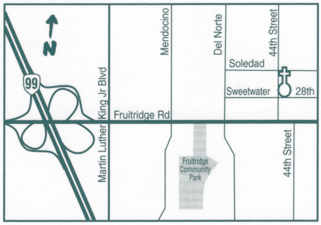
- This event has passed.
Sacramento Chesterton Society Meeting
October 13, 2020
Our next meeting will be on Tuesday evening, October 13th after the 7 pm Mass at St. Stephen’s. We will meet in person in room 2 and have a Zoom meeting connection for anyone else that is interested. Details will be forthcoming in a later email.
The readings are:
- From The Defendant, A Defense of Publicity
- We have already read the original Introduction, so let’s make sure we’ve also read (if you haven’t already) In Defense of a New Edition
From In Defense of Sanity, essays numbers 7 & 8:
And now, just for fun, and another piece of Chestertonian “defensiveness,” a section from the first chapter of Orthodoxy, Introduction: In Defense of Everything Else. If this sparks your interest, go ahead and read the whole chapter.
Happy reading!
Yours, Spencer
- I have often had a fancy for writing a romance about an English yachtsman who slightly miscalculated his course and discovered England under the impression that it was a new island in the South Seas. I always find, however, that I am either too busy or too lazy to write this fine work, so I may as well give it away for the purposes of philosophical illustration. There will probably be a general impression that the man who landed (armed to the teeth and talking by signs) to plant the British flag on that barbaric temple which turned out to be the Pavilion at Brighton, felt rather a fool. I am not here concerned to deny that he looked a fool. But if you imagine that he felt a fool, or at any rate that the sense of folly was his sole or his dominant emotion, then you have not studied with sufficient delicacy the rich romantic nature of the hero of this tale. His mistake was really a most enviable mistake; and he knew it, if he was the man I take him for. What could be more delightful than to have in the same few minutes all the fascinating terrors of going abroad combined with all the humane security of coming home again? What could be better than to have all the fun of discovering South Africa without the disgusting necessity of landing there? What could be more glorious than to brace one’s self up to discover New South Wales and then realize, with a gush of happy tears, that it was really old South Wales. This at least seems to me the main problem for philosophers, and is in a manner the main problem of this book. How can we contrive to be at once astonished at the world and yet at home in it? . . . I wish to set forth my faith as particularly answering this double spiritual need, the need for that mixture of the familiar and the unfamiliar which Christendom has rightly named romance. . . . We need so to view the world as to combine an idea of wonder and an idea of welcome. We need to be happy in this wonderland without once being merely comfortable. It is this achievement of my creed that I shall chiefly pursue in these pages.
- But I have a peculiar reason for mentioning the man in a yacht, who discovered England. For I am that man in a yacht. I discovered England. I do not see how this book can avoid being egotistical; and I do not quite see (to tell the truth) how it can avoid being dull. Dullness will, however, free me from the charge which I most lament; the charge of being flippant. Mere light sophistry is the thing that I happen to despise most of all things, and it is perhaps a wholesome fact that this is the thing of which I am generally accused. I know nothing so contemptible as a mere paradox; a mere ingenious defence of the indefensible . . . For if this book is a joke it is a joke against me. I am the man who with the utmost daring discovered what had been discovered before. If there is an element of farce in what follows, the farce is at my own expense; for this book explains how I fancied I was the first to set foot in Brighton and then found I was the last. . . . I tried to be some ten minutes in advance of the truth. And I found that I was eighteen hundred years behind it. I did strain my voice with a painfully juvenile exaggeration in uttering my truths. And I was punished in the fittest and funniest way, for I have kept my truths: but I have discovered, not that they were not truths, but simply that they were not mine. When I fancied that I stood alone I was really in the ridiculous position of being backed up by all Christendom. It may be, Heaven forgive me, that I did try to be original; but I only succeeded in inventing all by myself an inferior copy of the existing traditions of civilized religion. The man from the yacht thought he was the first to find England; I thought I was the first to find Europe. I did try to found a heresy of my own; and when I had put the last touches to it, I discovered that it was orthodoxy.


 5461 44th Street
5461 44th Street
